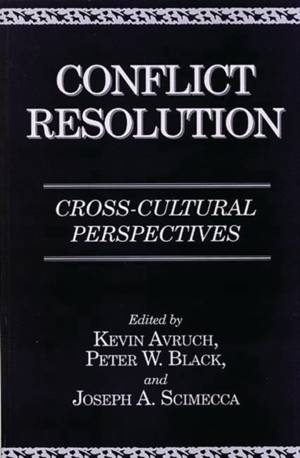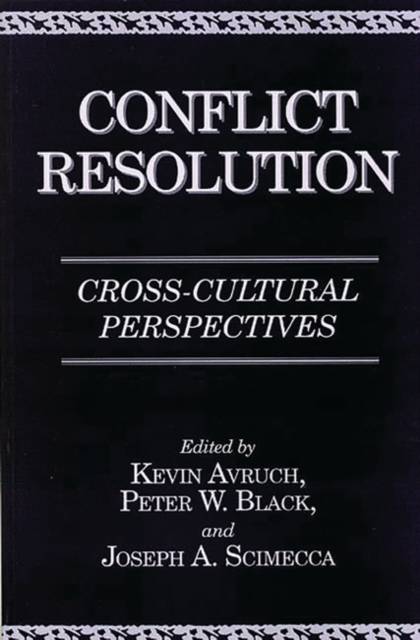
- Retrait gratuit dans votre magasin Club
- 7.000.000 titres dans notre catalogue
- Payer en toute sécurité
- Toujours un magasin près de chez vous
- Retrait gratuit dans votre magasin Club
- 7.000.0000 titres dans notre catalogue
- Payer en toute sécurité
- Toujours un magasin près de chez vous
56,45 €
+ 112 points
Description
This unique collection of comparable case studies addresses the need to assess modes of conflict resolution in a larger sociocultural context with attention to varying approaches and cultural perspectives. Editors Avruch, Black, and Scimecca, together with other anthropologists and sociologists, propose and test different propositions, while looking toward a general theory of conflict and conflict resolution. Their joint effort should be of real interest to sociologists, anthropologists, political scientists, indeed to all those concerned with ethnic studies and ethnoconflict today.
The contributors examine different theoretical concepts and approaches to conflict resolution in five different cultures, American, Arab, Asian, Latin American, and Pacific societies. The interdisciplinary study offers a broad range of vantage points for considering interpersonal, community, institutional, and national problems. The authors analyze concepts of personhood, the role of power and authority, ethical values, and methods for negotiating differences, and conflict resolution as an emerging discipline.Spécifications
Parties prenantes
- Auteur(s) :
- Editeur:
Contenu
- Nombre de pages :
- 256
- Langue:
- Anglais
- Collection :
Caractéristiques
- EAN:
- 9780275964429
- Date de parution :
- 23-07-98
- Format:
- Livre broché
- Format numérique:
- Trade paperback (VS)
- Dimensions :
- 150 mm x 235 mm
- Poids :
- 362 g

Les avis
Nous publions uniquement les avis qui respectent les conditions requises. Consultez nos conditions pour les avis.






